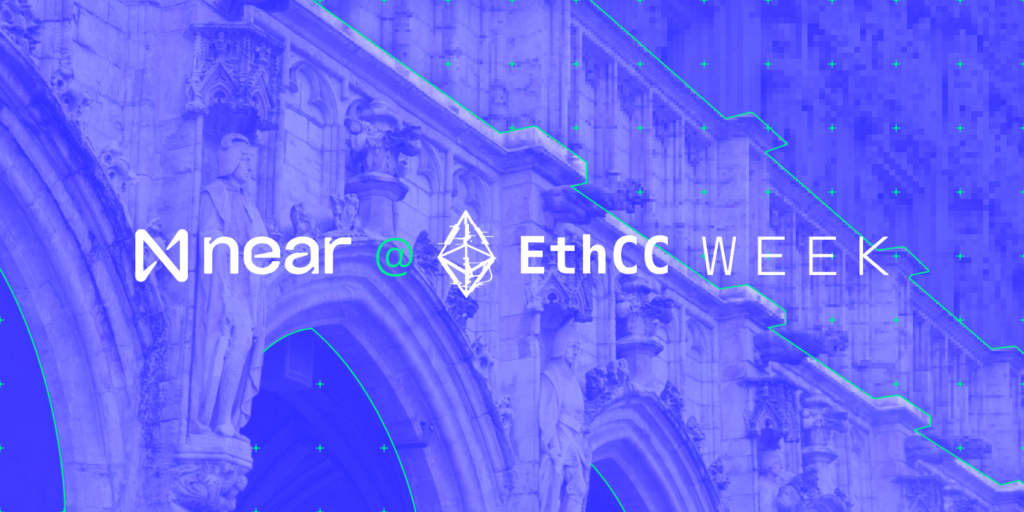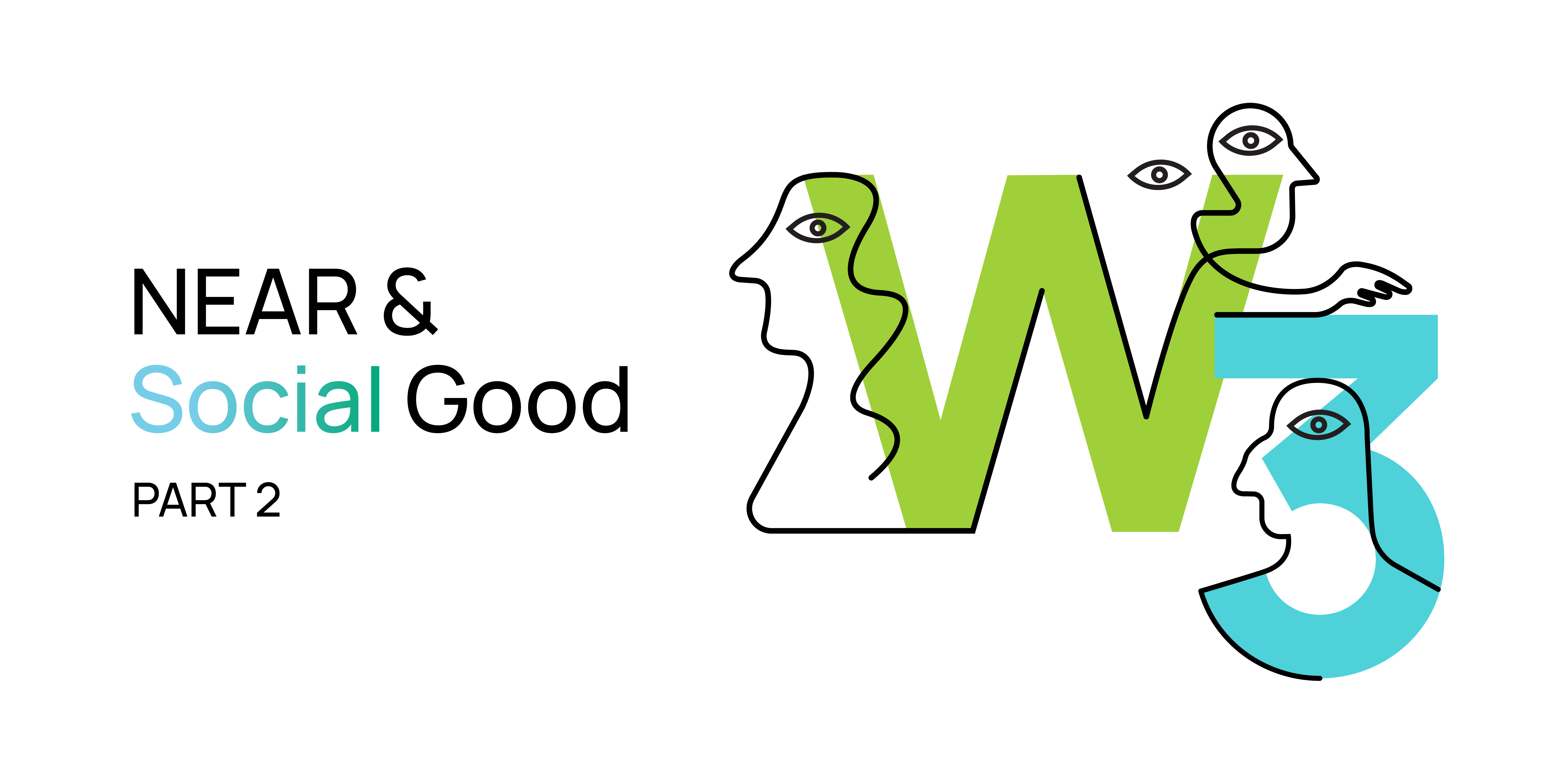NEAR & Social Good: Bringing Web3 to the Fringes
Web3 is sometimes labeled niche and even elitist. Blockchain products can be costly, difficult to understand, and not everyone has easy access to the space. Think NFTs and their explosion. Media coverage would suggest a subculture where only celebrities with absurd amounts of cash blow it on cartoon ape pictures. Some even go so far as to say that Web3 is redundant and provides no value.
But the mainstream narrative is only one narrow perspective—and an inaccurate one.
Beyond the noise and hype, people are building real projects with real value. In Web3, everyone can find a place to build inclusive apps and communities. Ones that bring people or groups historically marginalized by tech and society into the space.
And they’re using NEAR’s blockchain to do it.
Africa’s underprivileged communities building on Web3
In the dusty city of Jos, central Nigeria, locals cram into a bright blue classroom to watch a flat screen television. It’s (online) class time. And in this part of the world where access to tech and the Internet is limited, students of all ages are learning something new and exciting—how to mint NFTs.
Chapter One Foundation (C1) is a non-government organization built on NEAR, whose mission is to “spread positivity, opportunities and good art.” Through NFT sales, C1 helps aspiring artists get into recording studios, art facilities, and other spaces where they otherwise might have limited or no access.
It works like this: the C1 team helps mint traditional artists’ work as NFTs using NEAR’s NEP-171 NFT standard. The work is then sold on Mintbase, where 70% goes to the artist. C1 reinvests the remaining 30% in the organization to help it grow and buy more resources for creatives.
C1 co-founder, engineer, and musician Justin Burkholder says such an opportunity would not be possible without the Internet. In this case, the next iteration of the internet: Web3.
“It creates revenue streams in art which would normally involve a lot of interference from big business without Web3 and NFT technology,” he says. “It acts as a natural onboarding mechanism to the Web3 ecosystem—and NEAR in particular—while giving people opportunities to generate revenue and become productive members of their communities.”
The project is going well, too. People are gaining a greater understanding of Web3 and NEAR, and are even creating their own DAOs and building their own communities.
Feeding communities with Web3-enabled urban farming
In Lisbon, Portugal, the vertical farm startup Raiz is feeding local communities, including homeless people. In vertical farming, crops are grown indoors, with plants stacked on top of each other using hydroponic barrels and a combination of natural light and dynamic LEDs. It requires less land, water and pesticides, making it a more efficient and sustainable way of food harvesting.
To grow its food, Raiz is working to use unused urban spaces. Just recently it set up its first flagship farm in Lisbon and has also been donating its surplus crops to the Salvation Army. But Raiz won’t stop there, says Raiz CEO Emiliano Guittierez. The project will eventually help poor, food-insecure communities become self-sustainable.
“We aim to empower communities to build their own farms,” says Emiliano. “We can have investors from all over the world who can have a piece of ownership of farms, while people in Africa, South America, South East Asia or other developing parts of the world can deploy and build their own farms and have revenue from sales from the farms.”
How does Web3 fit into this picture? It boils down to scalability and traceability. Using NEAR’s technology, Raiz is building a token model that represents the farms, allowing people to invest, have a stake, and keep the vertical farm network growing in a traceable manner.
Further down the road, Raiz wants to introduce “impact tokens” that represent emissions avoided, and water and land saved as co-benefits.
Using DAOs for social good
This past June in New York City, NEAR-based Primordia—the “DAO of DAOs”—launched its campaign to create 100 DAOs that will work toward significant global social impact.
Launched by Kin DAO, a cooperative that helped over 55,000 people access critical services and resources during the pandemic before transforming into a project to help artists mint NFTs, Primordia is helping many little DAOs get set up to make a difference.
Primordia co-founder and San Francisco-based artist Asya Abdrahman says these DAOs will use “NEAR Protocol’s ethical blockchain” to help “people typically marginalized, overlooked or excluded.”
Some of these DAOs are already up and running. EFAM DAO is currently working to give food and medicine to displaced people in the US, while Petgas DAO is building a fossil fuel sustainability project in Mexico.
Why choose NEAR?
With a number of blockchains available, why are so many projects building on NEAR to help marginalized communities?
For one, it’s user friendly. A recurring theme for those building on NEAR’s blockchain is its ease of use. Web3 can be daunting, especially for those with no tech background.
“It’s an easy ecosystem to navigate and get involved with in transitioning from the Web2 to Web3,” says C1’s Burkholder.
“Although the mainstream is still hesitant about getting digital wallets, NEAR wallets are the easiest digital wallets that I’ve so far experienced using,” adds Asya.
NEAR is also the go-to blockchain for those concerned about the environment. Using a proof-of-stake (PoS) blockchain, it naturally uses less energy than proof-of-work chains, like Bitcoin.
The NEAR Protocol is also climate neutral. Last year, the NEAR Foundation enlisted South Pole, a global climate solutions firm, to help reduce NEAR’s carbon footprint, and offset its carbon footprint with green projects. This makes NEAR a natural draw for socially conscious projects, as social good often intersects with ecological balance.
Primoria’s Abdrahman adds that Ethereum, a blockchain she was using previously, kept promising to move to the more environmentally-friendly PoS chain, but it took too long. “For blockchain users that are concerned about climate-friendly solutions, NEAR is the go-to blockchain,” she adds.
All three projects also mention NEAR’s fast transaction speeds and low gas fees as attractive. Both are vital in onboarding people who aren’t exactly ‘tech-savvy,’ or who have typically been locked out from the Web3 world. Now they can take part.
Share this:
Join the community:
Follow NEAR:
More posts from our blog



